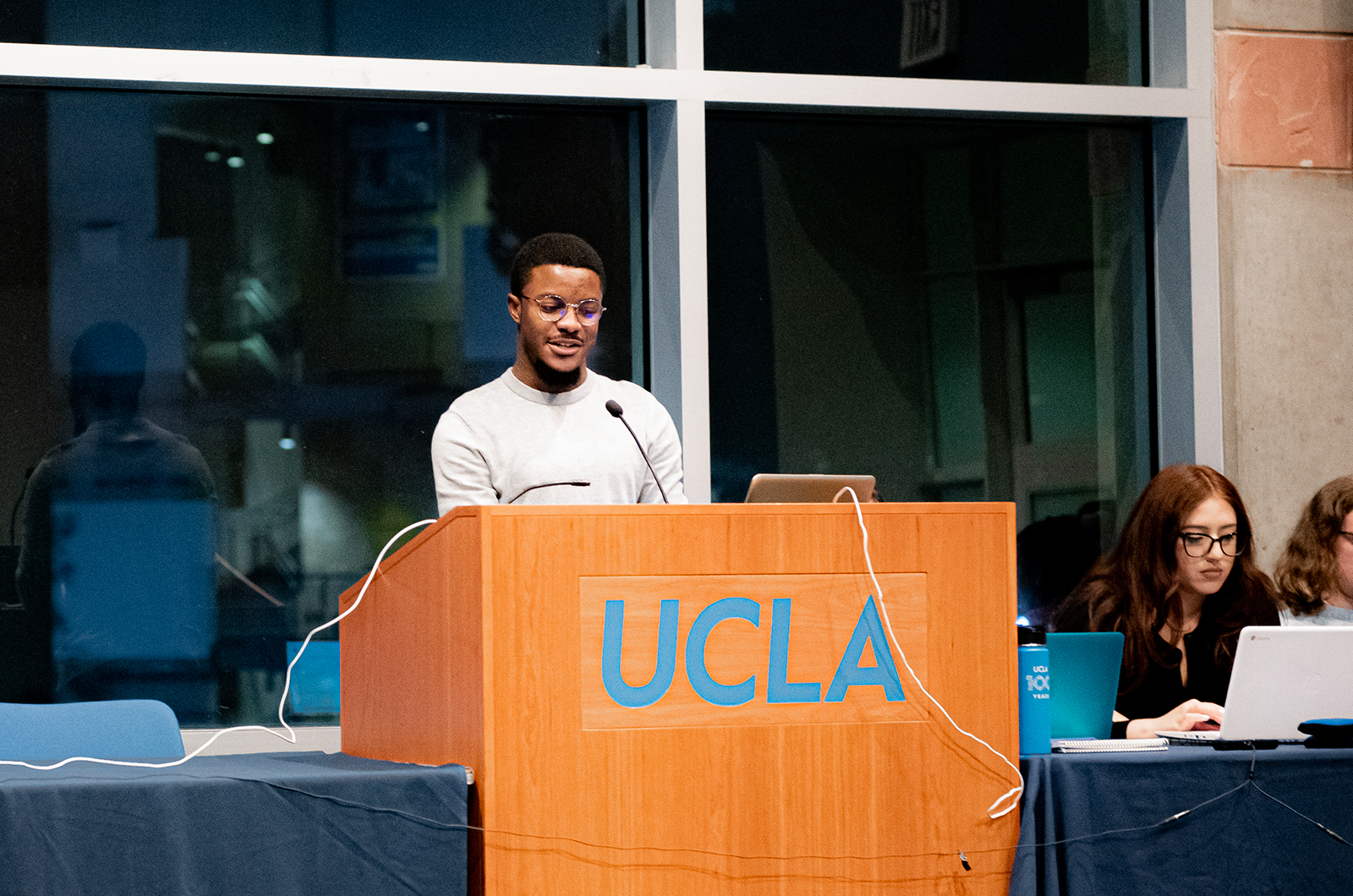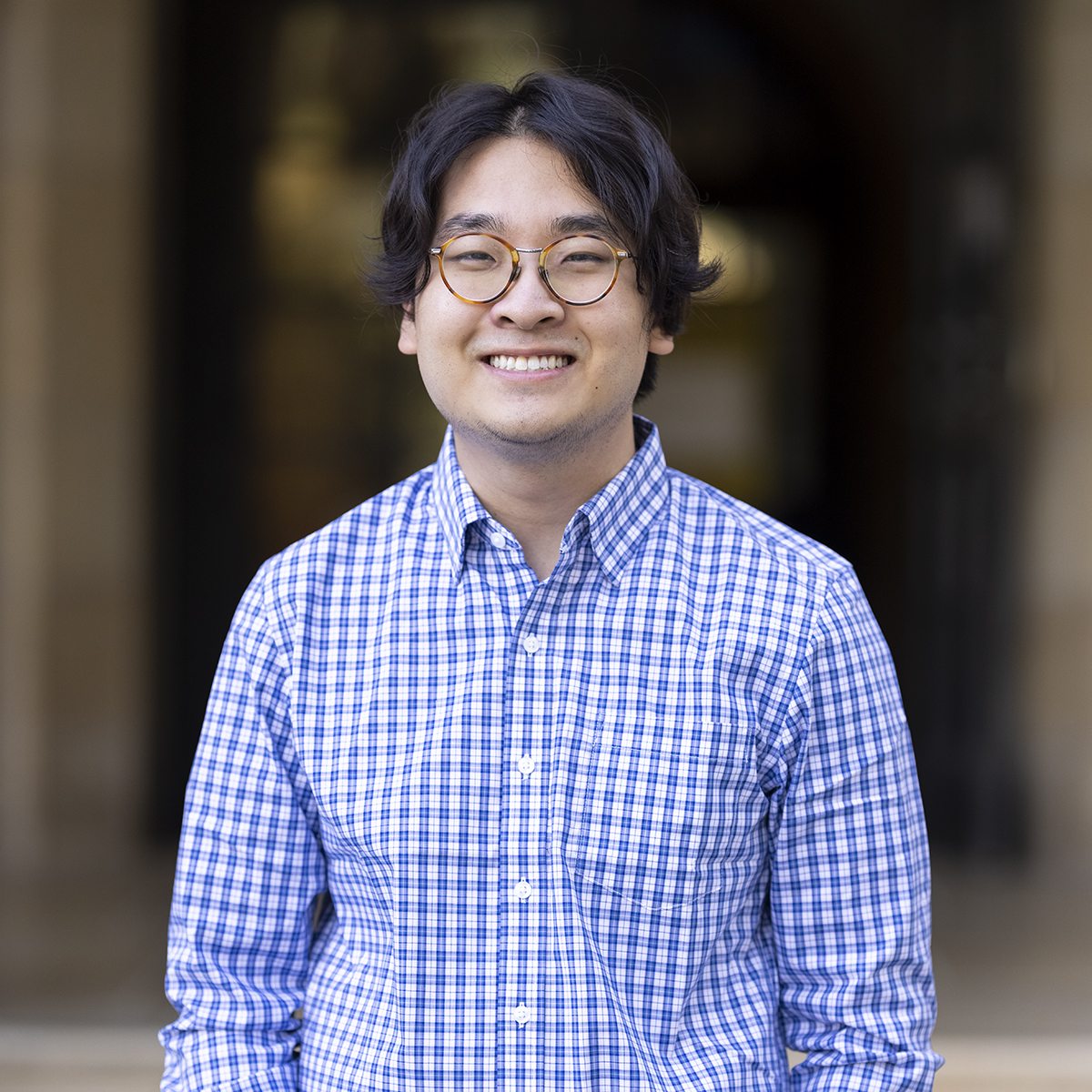USAC amends election code to provide greater clarity, transparency in process

The Undergraduate Students Association Council voted Jan. 21 to revise the USAC Election Code, which dictates election procedures. Changes include social media guidelines for election board chairs, physical voting stations and campaigning parameters. (Kanishka Mehra/Assistant Photo editor)

By Justin Jung
Jan. 28, 2020 12:01 a.m.
The Undergraduate Students Association Council approved sweeping changes to the election code Tuesday.
The council is the official student government representing undergraduate students at UCLA and manages about $9 million in student fees. The USAC Election Board is the body that manages all USAC elections and enforces the election code. The council amended the code on a number of sections, including contingencies for the resignation or removal of the election board, procedures for implementing physical polling stations and rules governing campaigning on the Hill.
One new change requires that election board chairs submit the passwords to any election board email or social media account to a university administrative advisor.
Election board chair Navi Sidhu, who was appointed Jan. 16 after the previous chair resigned, said that this change would help continuity between incoming and outgoing election board chairs. In the event that an outgoing chair would refuse to disclose the passwords, which has happened twice in the last two years, the changes would potentially allow a university administrative advisor to request a hold on the chair’s MyUCLA account.
However, it is unclear whether Kris Kaupalolo, assistant director of Student Organizations, Leadership and Engagement, would actually request a hold in such instances.
In addition to this change, Sidhu, a fourth-year psychobiology student, said he and General Representative 3 Brandon Broukhim worked on including transparency measures for the election board, such as clarifying the language of election code.
In addition, the number of signatures required to put an advisory vote on an election ballot has been reduced from 10% to 5% of the student body. An advisory vote is an official poll of the student body, and any student can start a petition for an advisory vote to be put on the ballot.
“We cut the petition threshold for nonbinding advisory votes to increase their use as a tool to gain the perspectives of the student body and to work on getting more students engaged with USAC and increasing voter turnout,” Broukhim said in an emailed statement.
Sidhu said he was also thinking of using physical polling stations on campus to raise voter turnout, adding that he is working with MyUCLA to evaluate the costs of setting up the stations.
Broukhim said he also prioritized clarifying rules about the types of approved campaigning strategies in his fall platforms.
“This change will make the elections process more accessible to potential candidates with no USAC experience, as the current process can often be convoluted and have steps that are, in my opinion, unuseful in regulating elections,” Broukhim said in the statement.
Chief Justice of the USA Judicial Board Jamail Gibbs said he made two main recommendations to the election code changes. The first was to remove the outdated rules and regulations link on the election board webpage. Gibbs, a fourth-year political science student, said the second and more important recommendation was to prohibit campaigning on the Hill without exception.
The code does still allow candidates to conduct invitation-only meetings in certain locations on the Hill. Acceptable locations for such meetings include residence hall rooms, self-reservable spaces and university apartments. However, although campaigning is defined by the code as any display for the purpose of convincing people to vote in a particular way, no specific definitions for the meetings are given.
Previously, contradictions in online election documents made it unclear whether campaigning was allowed on the Hill. General Representative 2 Orion Smedley was found to have campaigned on the Hill but received no sanctions because of the lack of clarity in the information he received, according to the judicial board’s report.
Sidhu also said he thinks that UCLA Residential Life does not prohibit students from conducting campaign meetings outside of residence halls, as long as they are not being disruptive, holding banners or trying to convince other students to vote for a particular candidate.
Gibbs also said he recommended changes to clarify how the transfer of powers during elections takes place. Previously, election results became effective following the council’s approval of minutes reading the results. These changes now make all election results official by a two-step process in which the election board would certify the results and the judicial board would swear in the officer-elect.
“Before, there was suggestion that the council had power to install the officer-elects, and myself as well, as I believe many others on the council saw the problematic nature of a partisan institution like the council (having) any say in the installation of their successors,” Gibbs said.
The USAC constitution states that the council has authority over the seating of its own members.
“I don’t interpret that as giving the council the authority to stall the seating of its own members,” Gibbs said. “I think that’s more of a statement on the council’s ability to ceremoniously approve the seating of its own members.”
In addition to all of the changes already made, Sidhu said he was planning on proposing additional changes to the council such as sustainability measures for campaigns. He said this may involve partially discounting the cost of sustainably sourced campaign materials in the total budget for a campaign.
Sidhu said these changes were significant because of the collaboration of USAC, the election board and judicial board in enacting them.
“Everything in here is a success for us,” Sidhu said. “Working with all the branches of the Undergraduate Students Association, the collaborative nature of it makes this everybody’s success, so I’m proud of that.”

